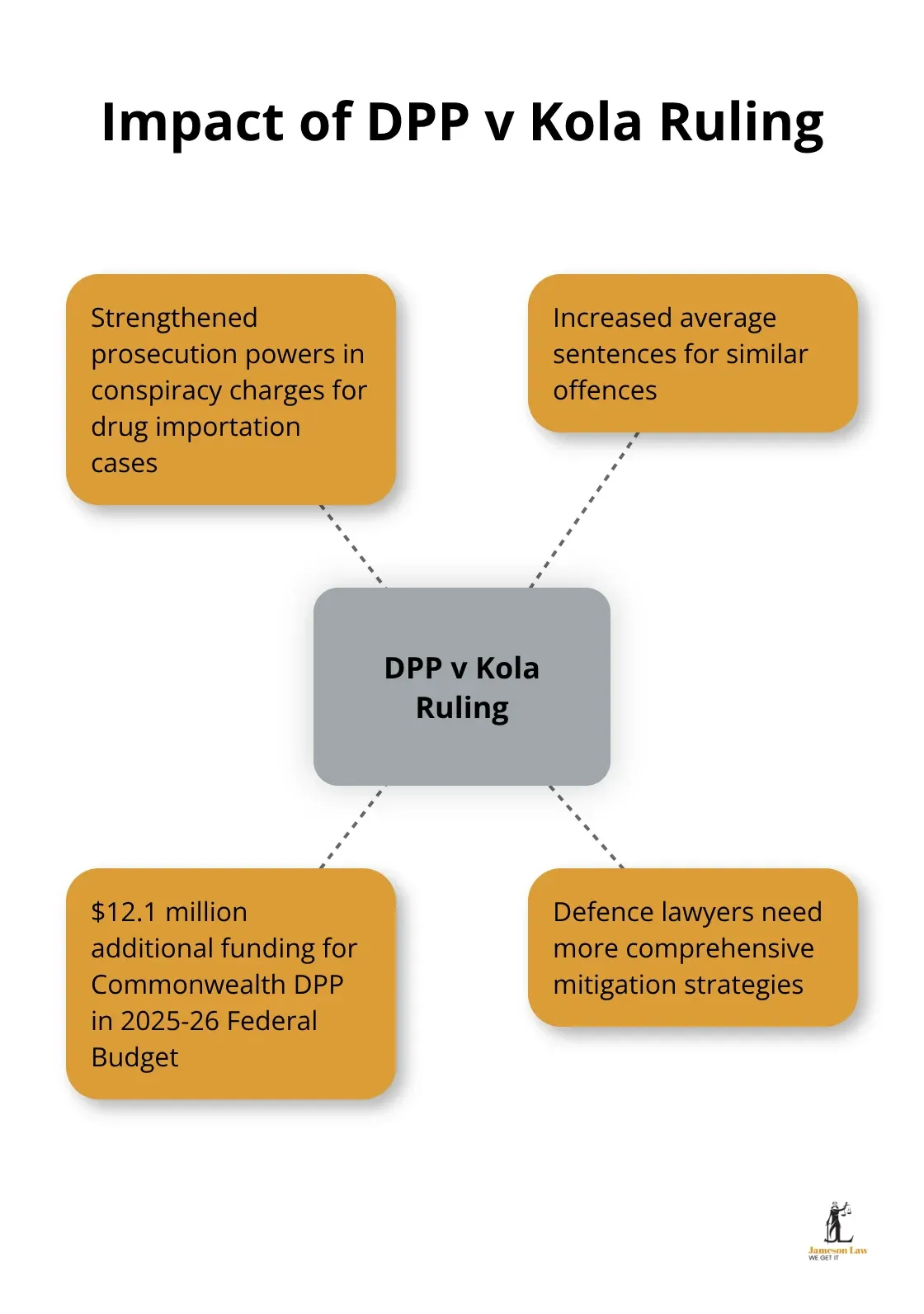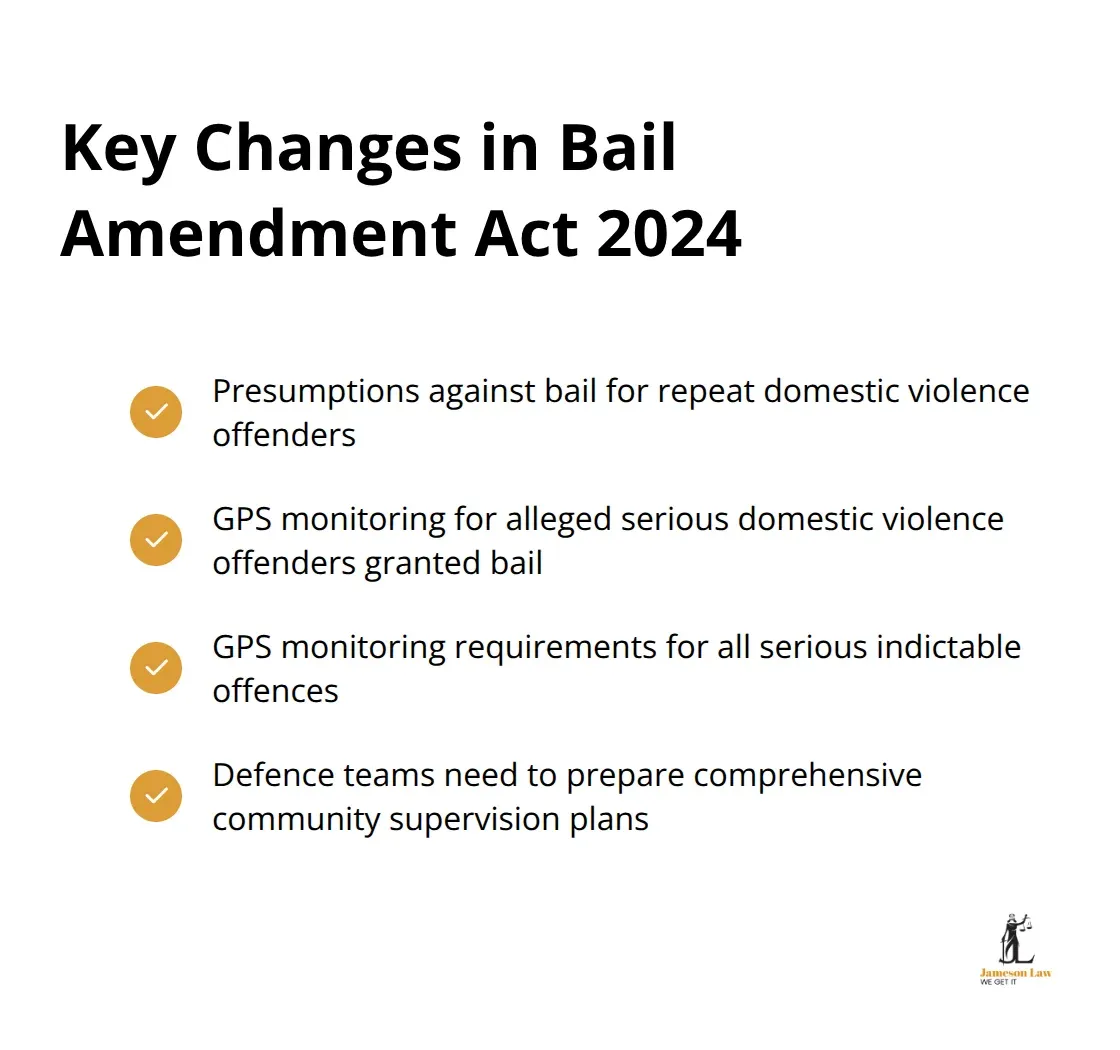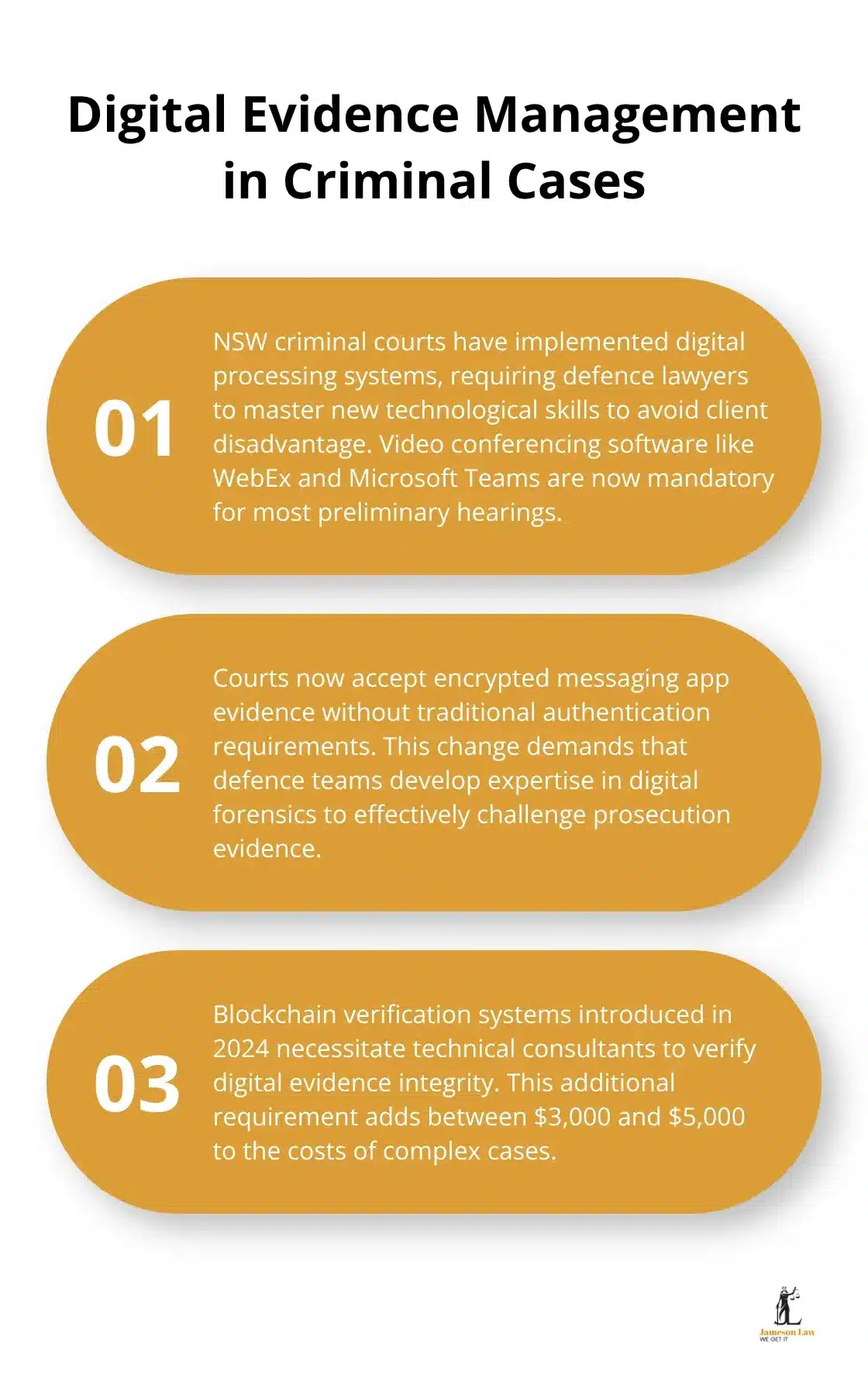NSW criminal law continues to evolve rapidly through landmark court decisions and legislative reforms. Recent months have brought significant changes that directly impact how criminal cases are handled across the state.
We at Jameson Law track these developments closely to keep our clients informed. This criminal law journal examines the most important updates shaping current practice.
Recent Criminal Law Case Decisions in NSW
High Court Sentencing Reforms
The High Court’s March 2024 ruling in Director of Public Prosecutions v Kola changed how NSW courts approach conspiracy charges in drug importation cases. This decision strengthened prosecution powers and increased average sentences for similar offences. The Commonwealth Director of Public Prosecutions received additional funding of $12.1 million in the 2025-26 Federal Budget to handle these enhanced prosecution measures. Criminal defence lawyers must now prepare more comprehensive mitigation strategies under these tougher sentencing parameters.

Court of Criminal Appeal Developments
The NSW Court of Criminal Appeal delivered judgments in 2024, with appeals involving sentence matters. The most significant trend shows courts reject leniency arguments based on mental health conditions unless comprehensive psychiatric evidence supports them. Appeals success rates indicate stricter appellate review standards. Defence teams now require more detailed expert reports and stronger procedural compliance to succeed on appeal.
District Court Precedent Changes
District Court judges imposed custodial sentences in serious assault cases during 2024. The court established new precedents around domestic violence matters and now requires mandatory victim impact statements in all cases involving family members. Technology evidence standards tightened significantly, with courts demanding chain of custody documentation for all digital evidence. These changes mean criminal lawyers must invest more time in evidence preparation and victim liaison processes to achieve favourable outcomes for clients.
These judicial developments directly connect to broader legislative reforms that Parliament has introduced across criminal procedure and evidence laws.
Legislative Updates and Reforms
Criminal Procedure Act Overhauls
NSW Parliament introduced substantial amendments to the Criminal Procedure Act 1986 in late 2024, fundamentally altering how criminal cases progress through the courts. The most significant change requires all summary matters to undergo mandatory case conferences within 28 days of first mention, reducing court backlogs according to NSW Bureau of Crime Statistics and Research data. Defence lawyers must now prepare detailed case summaries and witness statements much earlier in proceedings, forcing a complete restructure of traditional preparation timelines. These amendments also mandate electronic filing for all criminal matters, with courts rejecting paper submissions from January 2025 onwards.
Evidence Law Transformations
The Evidence Amendment Act 2024 revolutionised digital evidence admissibility standards, requiring blockchain verification for all electronic communications presented in criminal trials. Courts now accept body-worn camera footage as primary evidence without corroboration, strengthening prosecution cases in assault and domestic violence matters based on early implementation data. Defence teams must adapt their strategies to address this enhanced evidentiary landscape, particularly when challenging the authenticity of digital materials.
Bail Reform Implementation
The Bail Amendment Act 2024 created presumptions against bail for repeat domestic violence offenders, with alleged serious domestic violence offenders who are granted bail being electronically monitored around the clock using GPS technology. The Act also introduced GPS monitoring requirements for all serious indictable offences (including armed robbery and drug trafficking), with defence teams now needing to prepare comprehensive community supervision plans during bail applications. These legislative changes demand criminal lawyers completely rethink case preparation strategies and evidence handling protocols.

These procedural reforms work alongside emerging technological advances that continue to reshape how criminal defence operates in modern courtrooms.
How Technology Reshapes Criminal Defence
Digital Evidence Management Revolution
NSW criminal courts have implemented digital processing systems, which forces defence lawyers to master new technological skills or risk client disadvantage. Video conferencing software like WebEx and Microsoft Teams became mandatory for most preliminary hearings, reducing travel costs but requiring lawyers to adapt their advocacy techniques for screen-based presentations. Courts accept encrypted messaging app evidence without traditional authentication requirements, meaning defence teams must develop expertise in digital forensics to challenge prosecution evidence effectively. Blockchain verification systems introduced in 2024 mean lawyers need technical consultants to verify digital evidence integrity, adding $3,000-$5,000 to complex case costs.

Mental Health Assessment Integration
NSW courts mandate psychiatric evaluations for serious assault cases, with magistrates requiring detailed neuropsychological reports before sentencing. Mental health defences face significant challenges in court proceedings, forcing defence lawyers to invest heavily in qualified psychiatrists who charge $4,500-$6,500 per comprehensive assessment. Drug courts expanded statewide in 2024, diverting offenders from prison to treatment programs, but defence lawyers must complete specialised training to represent clients in these therapeutic settings.
Alternative Resolution Methods
Restorative justice conferences replaced traditional sentencing in youth matters, requiring lawyers to develop mediation skills and victim liaison expertise that traditional legal education never covered. Circle sentencing programs operate across NSW locations (primarily for Aboriginal offenders), with defence teams needing cultural competency training to participate effectively. These therapeutic approaches demand lawyers shift from adversarial advocacy to collaborative problem-solving, fundamentally changing how criminal defence operates in modern practice.
Final Thoughts
NSW criminal law experienced major shifts in 2024, with the High Court’s Director of Public Prosecutions v Kola decision transforming conspiracy prosecutions and the $12.1 million CDPP budget increase strengthening enforcement capabilities. Legislative reforms through the Criminal Procedure Act amendments, Evidence Amendment Act, and Bail Amendment Act changed case management protocols, digital evidence standards, and bail conditions. These developments force criminal lawyers to adapt to mandatory case conferences, blockchain evidence verification, and GPS monitoring requirements.
Technology integration through digital court systems and mental health assessment protocols creates new opportunities and challenges for defence practitioners. Defence teams must invest in technical expertise, cultural competency training, and collaborative advocacy skills to navigate this transformed landscape. The criminal law journal shows a clear trend toward stricter enforcement, enhanced victim protections, and therapeutic justice approaches (particularly in youth and Aboriginal matters).
We at Jameson Law monitor these developments to provide clients with expert criminal defence representation. The legal profession faces unprecedented change that requires continuous adaptation to serve clients effectively. Criminal lawyers must master new technologies, understand complex legislative frameworks, and develop collaborative skills to succeed in this evolved criminal justice environment.













